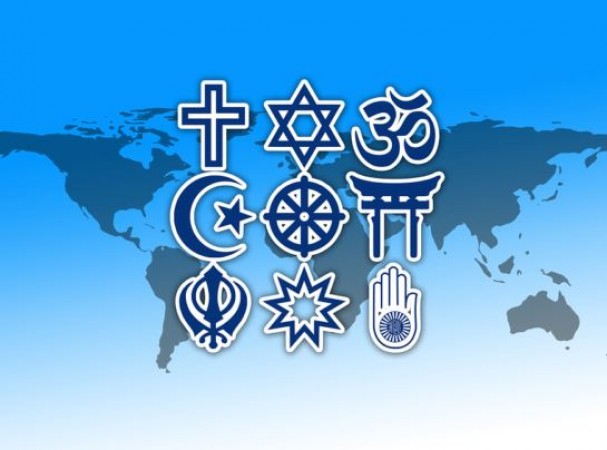
Religion, a cornerstone of human civilization, has existed since ancient times, shaping cultures, societies, and individuals across millennia. Defined broadly as a system of beliefs and practices concerning the sacred and divine, religions serve as frameworks for understanding the cosmos, morality, and humanity's place in the universe.
Oldest Religion in the World
Among the diverse array of religions practiced globally, Hinduism is widely regarded as the oldest. Also known as Sanatan Dharma, meaning "the eternal way" or "the eternal law," Hinduism is deeply rooted in the Indian subcontinent and has a complex and diverse history spanning thousands of years. Scholars and historians estimate its origins to be between 12,000 to 18,000 years ago, making it one of the oldest continuous religions in the world.
Hinduism encompasses a vast body of religious texts, philosophical schools, rituals, and cultural practices that have evolved over time. Its core principles include the belief in a cosmic order (dharma), the cycle of birth and rebirth (samsara), and the pursuit of liberation or moksha through righteous living, meditation, and devotion to the divine.
Other Ancient and Major World Religions
While Hinduism holds the title of the oldest known religion, several other major religions have significantly influenced global history and culture:
Judaism: Originating approximately 4,000 years ago in the Middle East, Judaism is a monotheistic religion centered on the covenant between God and the Jewish people as revealed in the Torah.
Christianity: Established around 2,000 years ago, Christianity emerged from the teachings and life of Jesus Christ in the Roman province of Judea. It emphasizes faith in Jesus as the Son of God and Savior.
Islam: Founded in the 7th century CE by Prophet Muhammad in Arabia, Islam is based on the Quran, believed to be the word of God as revealed to Muhammad. It emphasizes monotheism, prayer, charity, fasting, and pilgrimage.
Buddhism: Originating approximately 2,600 years ago in ancient India, Buddhism was founded by Siddhartha Gautama, known as the Buddha. It emphasizes the Four Noble Truths and the Eightfold Path as a means to achieve enlightenment and escape the cycle of suffering (samsara).
Sikhism: Established by Guru Nanak in the late 15th century in the Punjab region of South Asia, Sikhism emphasizes the belief in one God, equality of all humans, social justice, and the pursuit of spiritual growth through disciplined living.
Zoroastrianism: One of the world's oldest monotheistic religions, Zoroastrianism was founded by the prophet Zarathustra (Zoroaster) in ancient Persia around 3,500 years ago. It emphasizes the eternal battle between good (Ahura Mazda) and evil (Angra Mainyu).
Jainism: Founded around the same time as Buddhism by Mahavira in ancient India, Jainism emphasizes non-violence (ahimsa), truth (satya), non-attachment (aparigraha), and asceticism as a means to attain spiritual liberation.
Significance of Religion
Religions play pivotal roles in shaping cultural identity, ethical values, social norms, and legal systems across the globe. They provide frameworks for understanding the human condition, offering guidance on morality, purpose, and the afterlife. Moreover, religions often serve as catalysts for artistic expression, architecture, literature, music, and rituals that enrich the tapestry of human civilization.
Understanding the oldest religion in the world, Hinduism, and its position among other major religions provides valuable insights into the diverse spiritual and philosophical traditions that have shaped humanity's history and continue to influence global society today. Each religion offers unique perspectives on life's fundamental questions, contributing to the rich tapestry of religious diversity and cultural heritage worldwide.
NEET UG Retest Results Announced by NTA, How to Check
Mysterious Death of 17-Year-Old Girl at Vijayawada Madrasa Sparks Controversy
Congress Pushes for Constitutional Change to Remove Quota Cap Amid BJP Accusations